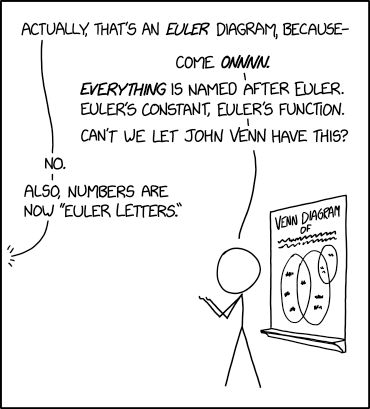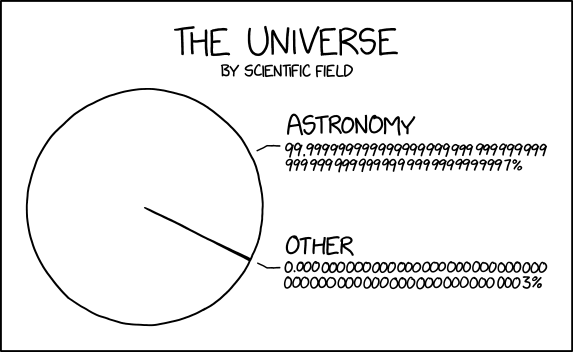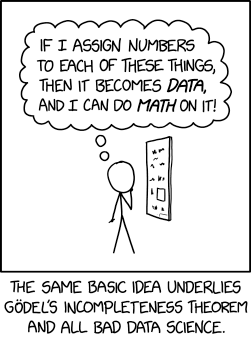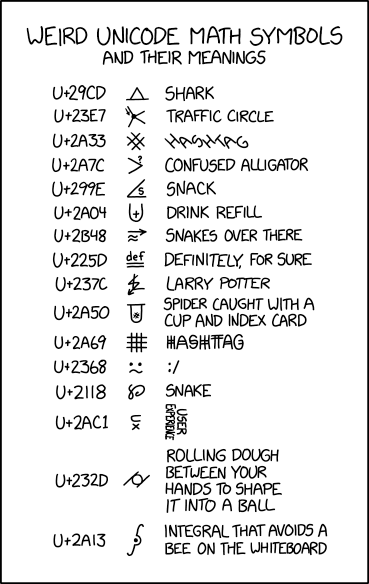Musk Predicts SpaceX Will Launch More AI Compute Per Year Than the Cumulative Total on Earth
Elon Musk told podcast host Dwarkesh Patel and Stripe co-founder John Collison that space will become the most economically compelling location for AI data centers in less than 36 months, a prediction rooted not in some exotic technical breakthrough but in the basic math of electricity su … ⌘ Read more
AI Models Are Starting To Crack High-Level Math Problems
An anonymous reader quotes a report from TechCrunch: Over the weekend, Neel Somani, who is a software engineer, former quant researcher, and a startup founder, was testing the math skills of OpenAI’s new model when he made an unexpected discovery. After pasting the problem into ChatGPT and letting it think for 15 minutes, he came back to a full solution. He ev … ⌘ Read more
Nature-Inspired Computers Are Shockingly Good At Math
An R&D lab under America’s Energy Department annnounced this week that “Neuromorphic computers, inspired by the architecture of the human brain, are proving surprisingly adept at solving complex mathematical problems that underpin scientific and engineering challenges.”
Phys.org publishes the announcement from Sandia National Lab:
In a paper published in Nature M … ⌘ Read more
2015 Radio Interview Frames AI As ‘High-Level Algebra’
Longtime Slashdot reader MrFreak shares a public radio interview from 2015 discussing artificial intelligence as inference over abstract inputs, along with scaling limits, automation, and governance models, where for-profit engines are constrained by nonprofit oversight: Recorded months before OpenAI was founded, the conversation treats intelligence as math plus in … ⌘ Read more
GNU C Library Sees Up To 12.9x Improvement With New Generic FMA Implementation
Just a few days ago I wrote about the Glibc math code seeing a 4x improvement on AMD Zen by changing the used FMA implementation. Merged overnight was a new generic FMA implementation for the GNU C Library and now yielding up to a 12.9x throughput improvement on AMD Zen 3… ⌘ Read more
Glibc Math Code Sees 4x Improvement On AMD Zen By Changing FMA Implementation
Merged this week to the GNU C Library “glibc” code is dropping the ldbl-96 FMA implementation from this library as in doing so they found a 4x improvement to throughput and latency on AMD Zen 3 hardware… ⌘ Read more
American Kids Can’t Do Math Anymore
An anonymous reader shares a report: For the past several years, America has been using its young people as lab rats in a sweeping, if not exactly thought-out, education experiment. Schools across the country have been lowering standards and removing penalties for failure. The results are coming into focus.
Five years ago, about 30 incoming freshmen at UC San Diego arrived with math skills below high- … ⌘ Read more
How do I remove her from my math homework? ⌘ Read more
One billionaire’s plan to build a women-only residential college at major Sydney university
Venture capitalist Solina Chau’s donation will house science, technology, engineering and maths students on campus. ⌘ Read more
UC San Diego Reports ‘Steep Decline’ in Student Academic Preparation
The University of California, San Diego has documented a steep decline in the academic preparation of its entering freshmen over the past five years, according to a report [PDF] released this month by the campus’s Senate-Administration Working Group on Admissions. Between 2020 and 2025, the number of students whose math skills fall below … ⌘ Read more
The biggest controversy in maths could be settled by a computer
For over a decade, mathematicians have failed to agree whether a 500-page proof is actually correct. Now, translating the proof into a computer-readable form may finally settle the matter ⌘ Read more
@movq@www.uninformativ.de Gemini liked your opinion very much. Here is how it countered:
1. The User Perspective (Untrustworthiness)The criticism of AI as untrustworthy is a problem of misapplication, not capability.
- AI as a Force Multiplier: AI should be treated as a high-speed drafting and brainstorming tool, not an authority. For experts, it offers an immense speed gain, shifting the work from slow manual creation to fast critical editing and verification.
- The Rise of AI Literacy: Users must develop a new skill—AI literacy—to critically evaluate and verify AI’s probabilistic output. This skill, along with improving citation features in AI tools, mitigates the “gaslighting” effect.
The fear of skill loss is based on a misunderstanding of how technology changes the nature of work; it’s skill evolution, not erosion.
- Shifting Focus to High-Level Skills: Just as the calculator shifted focus from manual math to complex problem-solving, AI shifts the focus from writing boilerplate code to architectural design and prompt engineering. It handles repetitive tasks, freeing humans for creative and complex challenges.
- Accessibility and Empowerment: AI serves as a powerful democratizing tool, offering personalized tutoring and automation to people who lack deep expertise. While dependency is a risk, this accessibility empowers a wider segment of the population previously limited by skill barriers.
The legal and technical flaws are issues of governance and ethical practice, not reasons to reject the core technology.
- Need for Better Bot Governance: Destructive scraping is a failure of ethical web behavior and can be solved with better bot identification, rate limits, and protocols (like enhanced
robots.txt). The solution is to demand digital citizenship from AI companies, not to stop AI development.
Show HN: Strange Attractors
I went down the rabbit hole on a side project and ended up building this: Strange Attractors( https://blog.shashanktomar.com/posts/strange-attractors). It’s built with three.js.
Working on it reminded me of the little “maths for fun” exercises I used to do while learning programming in early days. Just trying things out, getting fascinated and geeky, and being surprised by the results. I spent way too much time on this, but i … ⌘ Read more
Google, DuckDuckGo massively expand “AI” search results
Clearly, online search isn’t bad enough yet, so Google is intensifying its efforts to continue speedrunning the downfall of Google Search. They’ve announced they’re going to show even more “AI”-generated answers in Search results, to more people. Today, we’re sharing that we’ve launched Gemini 2.0 for AI Overviews in the U.S. to help with harder questions, starting with coding, advanced math and multimodal queries, with mor … ⌘ Read more
@lyse@lyse.isobeef.org I am a big fan of “obvious” math facts that turn out to be wrong. If you want to understand how reusing space actually works, you are mostly stuck reading complexity theory papers right now. Ian wrote a good survey: https://iuuk.mff.cuni.cz/~iwmertz/papers/m23.reusing_space.pdf . It’s written for complexity theorists, but some of will make sense to programmers comfortable with math. Alternatively, I wrote an essay a few years ago explaining one technique, with (math-loving) programmers as the intended audience: https://www.falsifian.org/blog/2021/06/04/catalytic/ .
(#2024-09-24T12:44:35Z) There is a increase in space/memory for sure. But calculating the hashes also takes up CPU. I’m not good with that kind of math, but it’s a tradeoff either way.
Pinellas Trail Challenge: 36.30 miles, 00:14:47 average pace, 08:56:28 duration
DNF’d, but had a great time! i could have walked it out the last ten miles and still made the cut-off but after doing the math i would not have been done until about 1900 and we had guests visiting from out of town and i did not want to be even more of a wreck while entertaining. met a lot of great people and happy for the challenge.
#running #race
Where’s the Calculator on iPad? Use Spotlight!
Calculators are wildly useful tools for various obvious reasons, whether you need to perform simple math or complex calculations. One of the more curious iPad oversights on Apple’s behalf is the lack of a built-in Calculator app, which is missing on iPad, but has been included on the Mac, iPhone, and Apple Watch, since the … Read More ⌘ Read more
@movq@www.uninformativ.de Haha! yeah sounds about like my HS CS program. A math teacher taught visual basic and pascal. and over on the other end of the school we had “electronics” which was a room next to the auto body class where they had a bunch of random computer parts scavenged from the district decommissioned surplus storage.
The advanced class would piece together training kits for the basic class to put together.
How CPUs Do Math(s) - Computerphile ⌘ Read more
So today’s #adventofcode was solved with no programming. Just a bit o maths and wolfram/alpha
@prologic@twtxt.net It was super useful if you needed to do the sorts of things it did. I’m pretty sad.
At its core was Sage, a computational mathematics system, and their own version of Jupyter notebooks. So, you could do all kinds of different math stuff in a notebook environment and share that with people. But on top of that, there was a chat system, a collaborative editing system, a course management system (so if you were teaching a class using it you could keep track of students, assignments, grades, that sort of thing), and a bunch of other stuff I never used. It all ran in a linux container with python/conda as a base, so you could also drop to a terminal, install stuff in the container, and run X11 applications in the same environment. I never taught a class with it but I used to use it semi-regularly to experiment with ideas.
I used to be a big fan of a service called cocalc, which you could also self host. It was kind of an integrated math, data science, research, writing, and teaching platform.
I hadn’t run it in awhile, and when I checked in with it today I found their web site brags that cocalc is now “extensively integrated with ChatGPT”.
Which means I can’t use it anymore, and frankly anyone doing anything serious shouldn’t use it either. Very disappointing.
I’d like to garbage-collect some symbols in the math I’m currently writing, help
Definition of e
 ⌘ Read more
⌘ Read more
Euler Diagrams
 ⌘ Read more
⌘ Read more
https://indymotion.fr/c/el_jj/videos chaîne avec des vidéos de maths
[Emacs] 替數學符號設定專用字型 ⌘ Read more
The Universe by Scientific Field
 ⌘ Read more
⌘ Read more
Math support in Markdown
Mathematical expressions are key to information sharing amongst engineers, scientists, data scientists, and mathematicians. Today we are pleased to announce that math expressions can be rendered in Markdown on GitHub using $$ as a delimiter for code blocks with math content or the $ delimiter for inline math expressions. ⌘ Read more
Assigning Numbers
 ⌘ Read more
⌘ Read more
Weird Unicode Math Symbols
 ⌘ Read more
⌘ Read more
Mozilla responds to Google Chrome version 100 by releasing Firefox version “1,000,000”
“You just got mathed, Google.” ⌘ Read more
90 fun things to do in an elevator: https://www.math.uni-bielefeld.de/~sillke/Twister/fun/elevator-fun90.html
being able to render TeX math equations to PNG files is pretty empowering, because it allows me to write about more technical things here that would otherwise be more difficult to communicate in plaintext.
Video on eqn: Formatting Math and Statistics in groff and troff ⌘
Posted to Entropy Arbitrage: Colors for Programmers https://john.colagioia.net/blog/2020/03/11/colors.html #techtips #programming #design #color #format #math
Posted to Entropy Arbitrage: Happy (Orthodox?) Pi Day, Tomorrow! https://john.colagioia.net/blog/2020/03/04/pi.html #holiday #math #dissent #pi #radix #programming #techtips
A Feud Between Two Popular Statisticians, Nassim Taleb and Nate Silver, on Election Forecasting http://nautil.us/blog/nassim-talebs-case-against-nate-silver-is-bad-math
I think DEVO might have got their math wrong in We’re Through Being Cool. Have I met 2 dozen members of any social group? That’s like 20% of my dunbar allocation.
@adiabetic@www.frogorbits.com You can’t argue with math. My math told me to eat a Balisto.
This is math-heavy but the idea that ‘keys are meta-taxonomic dimensions’ reminds me of ZigZag & other elements make me think of parallel prolog-likes like mycroft – should re-read carefully later: http://www.vpri.org/pdf/m2009002_qod.pdf
Topology of Numbers http://pi.math.cornell.edu/~hatcher/TN/TNpage.html